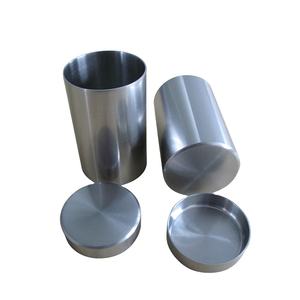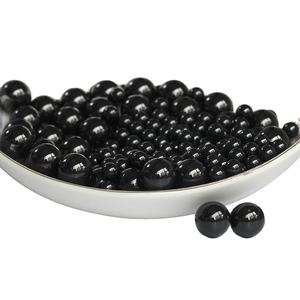High-Quality Silicon Carbide Products | Advanced Ceramic Solutions
PRODUCT PARAMETERS
Description
Overview of Silicon Carbide Ceramic
Silicon carbide (SiC) ceramic is a high-performance material known for its exceptional hardness, wear resistance, and thermal stability. It is widely used in cutting tools, abrasives, automotive components, and high-temperature applications due to its superior mechanical properties and chemical inertness.
Features of Silicon Carbide Ceramic
High Hardness: SiC ceramics are among the hardest known materials, making them ideal for abrasive and cutting applications.
Thermal Stability: They can withstand extreme temperatures without degrading, making them suitable for high-temperature environments.
Wear Resistance: Exceptional resistance to wear and abrasion ensures long-lasting performance.
Chemical Inertness: Resistant to most chemicals, including acids and alkalis, enhancing their durability in harsh conditions.
Low Thermal Expansion: Minimal expansion or contraction with temperature changes, ensuring dimensional stability.
Electrical Conductivity: Some forms of SiC ceramics exhibit semiconducting properties, useful in electronic devices.
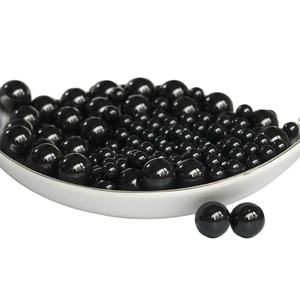
(Silicon Carbide SSiC Ceramic Plate/ Tiles For Armor)
Specifications of Silicon Carbide SSiC Ceramic Plate/ Tiles For Armor
Silicon Carbide (SSiC) ceramic plates/tiles are advanced shield options developed for high-performance ballistic defense in armed forces, aerospace, and protection applications. Made through pressureless sintering of pure silicon carbide powder, SSiC supplies exceptional solidity, light-weight properties, and resistance to severe settings. Below are the key requirements:
** Material Make-up **: SSiC (Sintered Silicon Carbide) is made up of 99%+ pure silicon carbide (SiC) with trace sintering help for boosted density. It features a fine-grained microstructure, making certain consistent mechanical properties.
** Thickness **: 3.10– 3.15 g/cm ³, considerably lighter than traditional metals like steel, reducing general weight for mobility-critical applications.
** Firmness **: Rockwell A (HRA) firmness of 92– 94, supplying superior resistance to penetration from high-velocity projectiles, shrapnel, and abrasion.
** Flexural Strength **: 350– 450 MPa, making certain architectural stability under high-impact lots.
** Compressive Toughness **: Goes Beyond 2500 MPa, suitable for multi-hit scenarios and layered armor systems.
** Thermal Qualities **: High thermal security with a thermal conductivity of 120– 150 W/m · K and a reduced thermal development coefficient (4.0– 4.5 × 10 ⁻⁶/ K). Runs accurately in temperature levels as much as 1650 ° C( 3000 ° F) in inert environments.
** Chemical Resistance **: Inert to acids, alkalis, and oxidizing representatives, guaranteeing resilience in corrosive or rough problems.
** Ballistic Performance **: Fulfills MIL-DTL-62433 and other armed forces requirements. Reliable versus armor-piercing (AP) rounds, fragments, and multi-threat projectiles. Usually incorporated right into composite shield systems with support products like UHMWPE or aramid for energy absorption.
** Surface Finish **: Precision-machined surfaces with Ra 0.4– 1.6 µm for optimum bonding in laminated arrangements.
** Capacities **: Adjustable sizes (typical: 100×100 mm to 300×300 mm) and densities (6– 25 mm), tailored to danger degrees. Resistances as limited as ± 0.1 mm for thickness.
** Applications **: Body armor plates, lorry shield (land/air), helicopter seats, and important facilities security.
** Advantages **: Incorporates lightweight layout with unparalleled hardness and thermal shock resistance. SSiC plates are non-metallic, lowering radar trademarks, and supply long-lasting reliability in severe fight or industrial environments.
SSiC ceramic armor is rigorously evaluated for compliance with NIJ, STANAG, and various other international ballistic criteria, guaranteeing life-saving performance in high-threat situations.
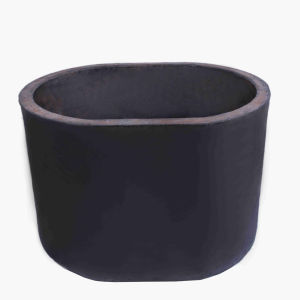
(Silicon Carbide SSiC Ceramic Plate/ Tiles For Armor)
Applications of Silicon Carbide SSiC Ceramic Plate/ Tiles For Armor
Silicon Carbide (SSiC) ceramic plates and ceramic tiles are reinventing modern-day armor systems with their remarkable mix of lightweight sturdiness, high hardness, and superior ballistic efficiency. SSiC, or sintered silicon carbide, is a sophisticated ceramic material engineered through high-temperature sintering, resulting in a thick, ultra-hard framework perfect for quiting high-velocity projectiles and shrapnel. Its key application hinges on individual and vehicle armor, where minimizing weight without endangering security is vital.
In body armor, SSiC ceramic plates are incorporated into bulletproof vests and helmets to shield against rifle rounds and armor-piercing hazards. The material’s severe firmness (2nd only to ruby) cracks incoming projectiles on influence, dissipating power and reducing penetration. Paired with composite backings like aramid or polyethylene, these plates provide multi-hit capacity while continuing to be considerably lighter than conventional steel shield. This weight reduction enhances movement for military employees and law enforcement.
For armed forces vehicles, SSiC tiles are made use of in armored hulls, turrets, and aircraft panels to defend against ballistic and eruptive dangers. Their thermal stability and resistance to extreme temperature levels make them appropriate for environments where traditional steels could fall short. SSiC’s low thickness likewise lessens included weight, boosting automobile rate and gas effectiveness. In naval and aerospace applications, the material’s corrosion resistance guarantees longevity in harsh problems.
SSiC ceramic shield is also employed in noncombatant markets, such as VIP cars, bank transports, and important infrastructure defense. Its flexibility permits modification right into bent or interlocking floor tiles for complicated forms. Furthermore, SSiC’s wear resistance and chemical inertness reduce long-lasting maintenance costs contrasted to metal-based systems.
Past ballistic security, SSiC’s capacity to hold up against thermal shock and abrasion makes it perfect for crossbreed armor systems. When layered with steels or composites, it improves multi-threat defense while keeping architectural stability. As modern war and safety and security needs develop, silicon carbide SSiC porcelains stay a foundation of light-weight, high-performance shield solutions, providing unmatched protection without compromising functional performance.
Company Introduction
Welcome to It-Chuiko, a premier international supplier of high-quality silicon carbide powder and silicon carbide ceramics. Our products are renowned for their exceptional hardness, thermal stability, and wear resistance, making them ideal for abrasives, cutting tools, refractory materials, and advanced semiconductor applications. We serve a diverse range of industries, including automotive, aerospace, and electronics, with a commitment to quality and innovation. With state-of-the-art production facilities and rigorous quality control, we ensure that our customers receive superior products tailored to their specific needs. Partner with us for reliable, high-performance materials that drive your business forward.
If you have any questions, please feel free to contact us(nanotrun@yahoo.com).
Payment Methods
T/T, Western Union, Paypal, Credit Card etc.
Shipment Methods
By air, by sea, by express, as customers request.
5 FAQs of Silicon Carbide SSiC Ceramic Plate/ Tiles For Armor
What is Silicon Carbide SSiC ceramic, and why is it used for armor? Silicon Carbide SSiC (Sintered Silicon Carbide) is a high-performance technical ceramic known for exceptional hardness, thermal stability, and mechanical strength. It is used in armor systems due to its ability to absorb and dissipate kinetic energy from projectiles or shrapnel, reducing penetration. Its lightweight nature compared to metals like steel also makes it ideal for body and vehicle armor without compromising protection.
How does SSiC ceramic compare to other armor materials like alumina or boron carbide? SSiC offers a balance of properties superior to alumina in terms of hardness and thermal resistance, while being more cost-effective than boron carbide. Though boron carbide is lighter and harder, SSiC excels in high-temperature environments and provides better structural stability under sustained stress. Its lower density compared to metals and competitive pricing make it a practical choice for multi-threat armor solutions.
What are the key advantages of SSiC ceramic plates for ballistic protection? SSiC ceramic plates provide high hardness to shatter incoming projectiles, reducing their momentum. The material’s low density ensures lightweight armor systems, crucial for mobility in military or tactical applications. It also resists extreme temperatures, corrosion, and wear, ensuring durability in harsh environments. When paired with a backing material like polyethylene or aramid, it creates a composite armor system that effectively traps fragmented threats.
Are there limitations to using SSiC ceramic tiles in armor? While SSiC is highly effective, its brittleness can lead to cracking under multi-hit scenarios if not properly engineered. It is also more expensive than traditional steel armor, though lighter and more durable. Optimal performance requires integration into a layered armor system, as standalone ceramic plates may not stop high-velocity or armor-piercing rounds without additional support layers.
How durable are SSiC ceramic plates over time? SSiC ceramic plates are highly durable under normal conditions, resisting environmental degradation, UV exposure, and chemical corrosion. However, their ballistic performance can degrade if subjected to repeated impacts or structural cracks. Regular inspections are recommended for armor systems used in active scenarios to ensure integrity. With proper handling, SSiC-based armor maintains reliability over extended periods.
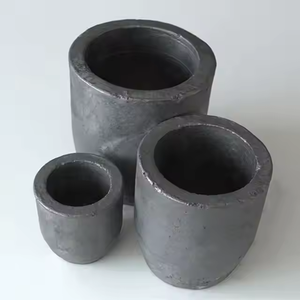
(Silicon Carbide SSiC Ceramic Plate/ Tiles For Armor)
REQUEST A QUOTE
RELATED PRODUCTS

Boron carbide Insert Silicon carbide Tiles From China
10PPI 20PPI 30PPI 40PPI Silicon Carbide Foam Ceramic Filter Media for Molten Metal Filtration and Low Pressure Casting
High Hardness Factories Ceramic Polished Silicon Carbide Sic Ceramic Plate Sheet
High temperature silicon carbide ceramic plates 1650C refractory silicon carbide tiles for kiln shelf
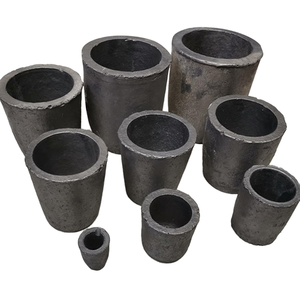
Whole abrasion-resistant siliconized Silicon Carbide SISIC Ceramic Tile Tube Pipe Burner Product
